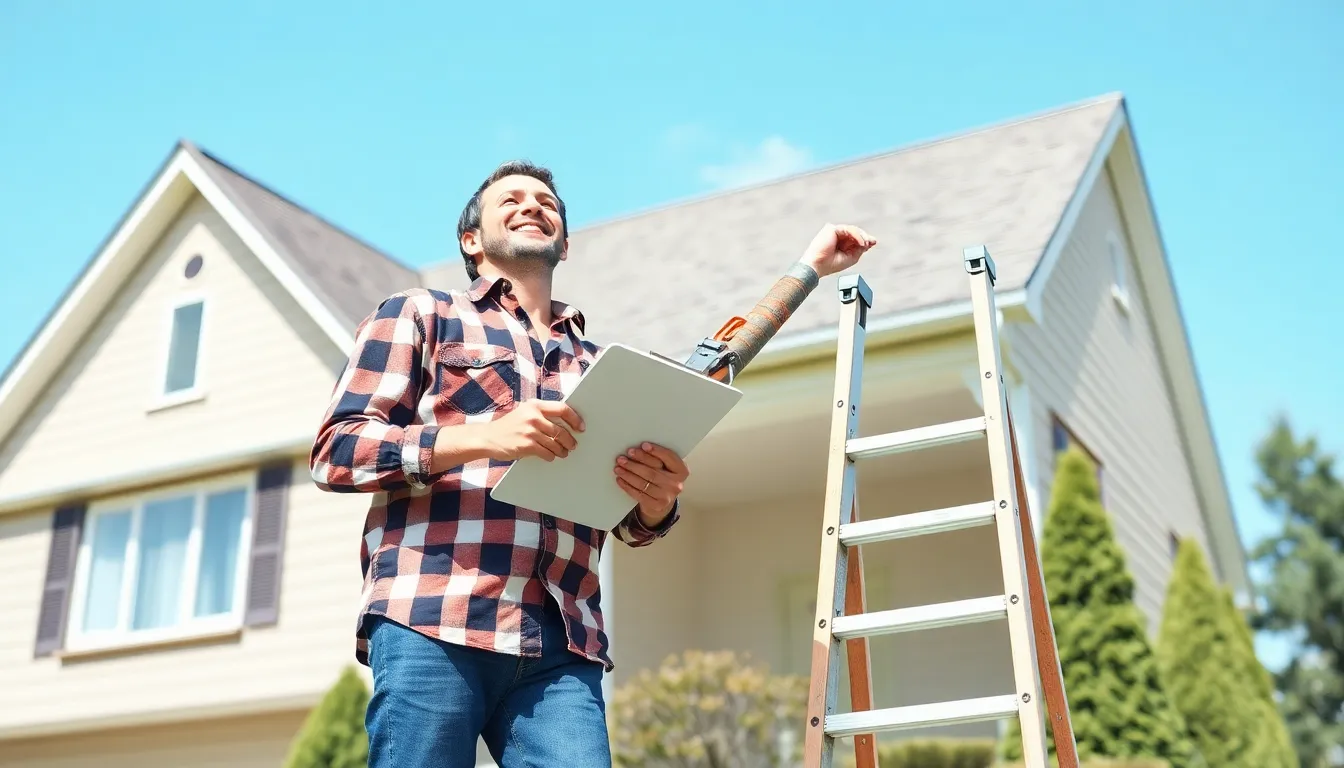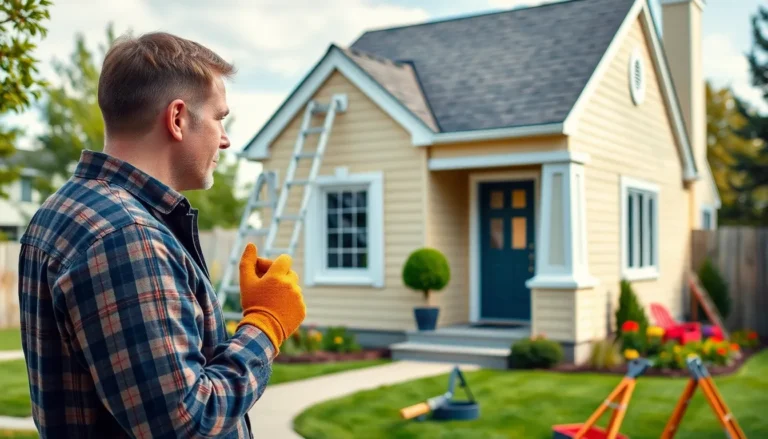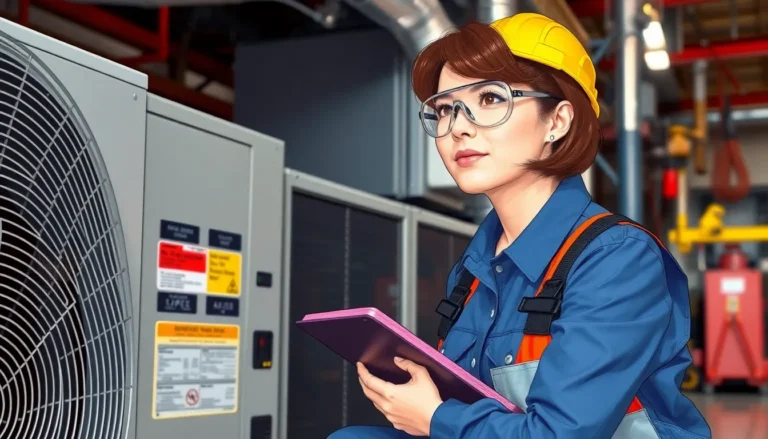Table of Contents
ToggleEvery homeowner knows that keeping a house in tip-top shape is like a never-ending game of Whac-A-Mole. Just when you think you’ve fixed one issue, another pops up to say hello. That’s where a home maintenance inspection swoops in like a superhero, ready to save the day. It’s not just about checking off boxes; it’s about preventing those pesky surprises that can lead to costly repairs down the road.
Imagine discovering that leaky roof before it turns your living room into a water park. A thorough inspection can uncover hidden issues and give homeowners peace of mind. Plus, it’s a great excuse to strut around your home, clipboard in hand, feeling like a DIY boss. So, let’s dive into why a home maintenance inspection isn’t just a good idea—it’s the secret sauce to keeping a home happy and healthy.
Importance of Home Maintenance Inspection
Home maintenance inspections play a vital role in identifying potential issues before they escalate. Regular check-ups ensure that a house remains safe and functional.
Benefits of Regular Inspections
Homeowners benefit significantly from conducting regular inspections. Detecting problems early saves money on major repairs. Maintaining home value proves easier when issues are addressed promptly. It fosters a sense of security, knowing that potential hazards are managed. Additionally, inspections can enhance energy efficiency, leading to reduced utility costs.
Common Issues Found During Inspections
Various issues frequently surface during home inspections. Roof leaks often go unnoticed until significant damage occurs. Plumbing leaks can lead to structural issues and mold growth over time. Electrical problems pose serious safety risks, requiring immediate attention. HVAC system inefficiencies commonly result in higher energy bills. Lastly, pest infestations may become apparent, compromising home integrity.
Key Areas to Inspect
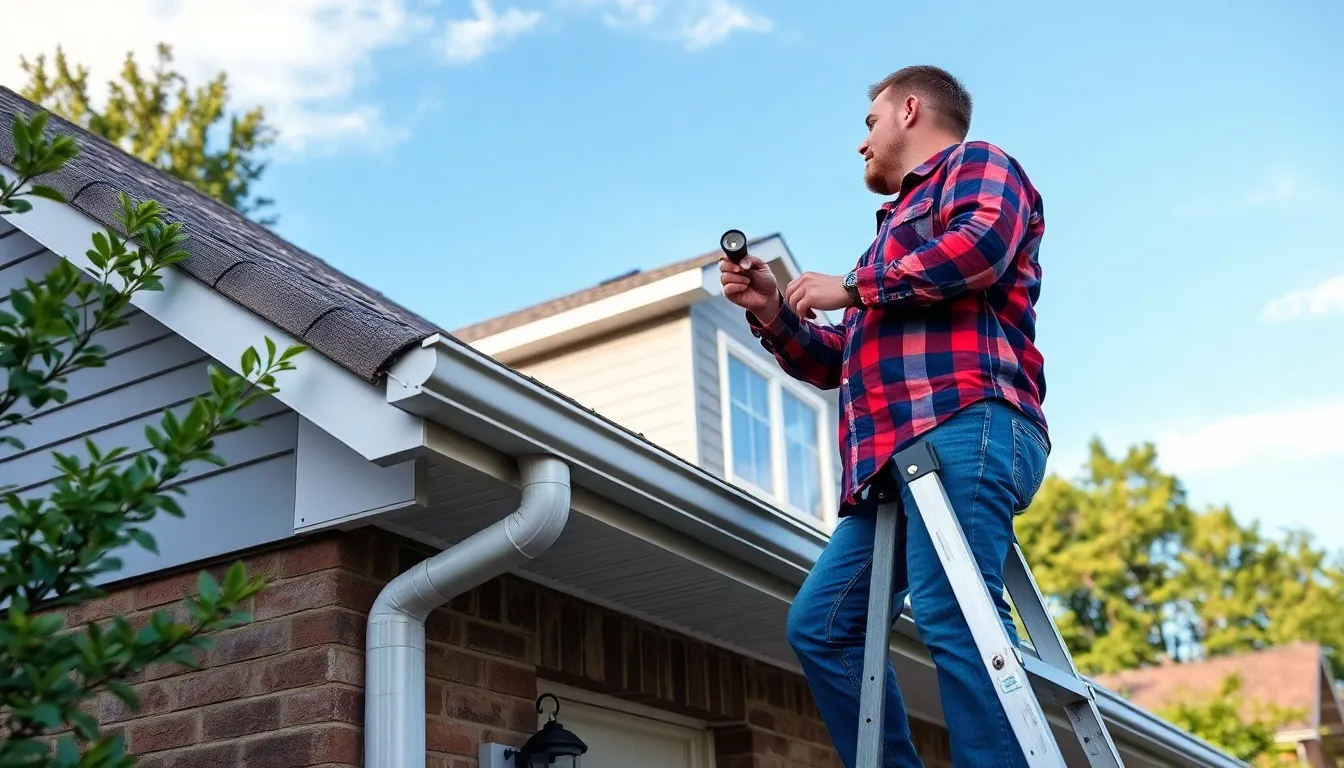
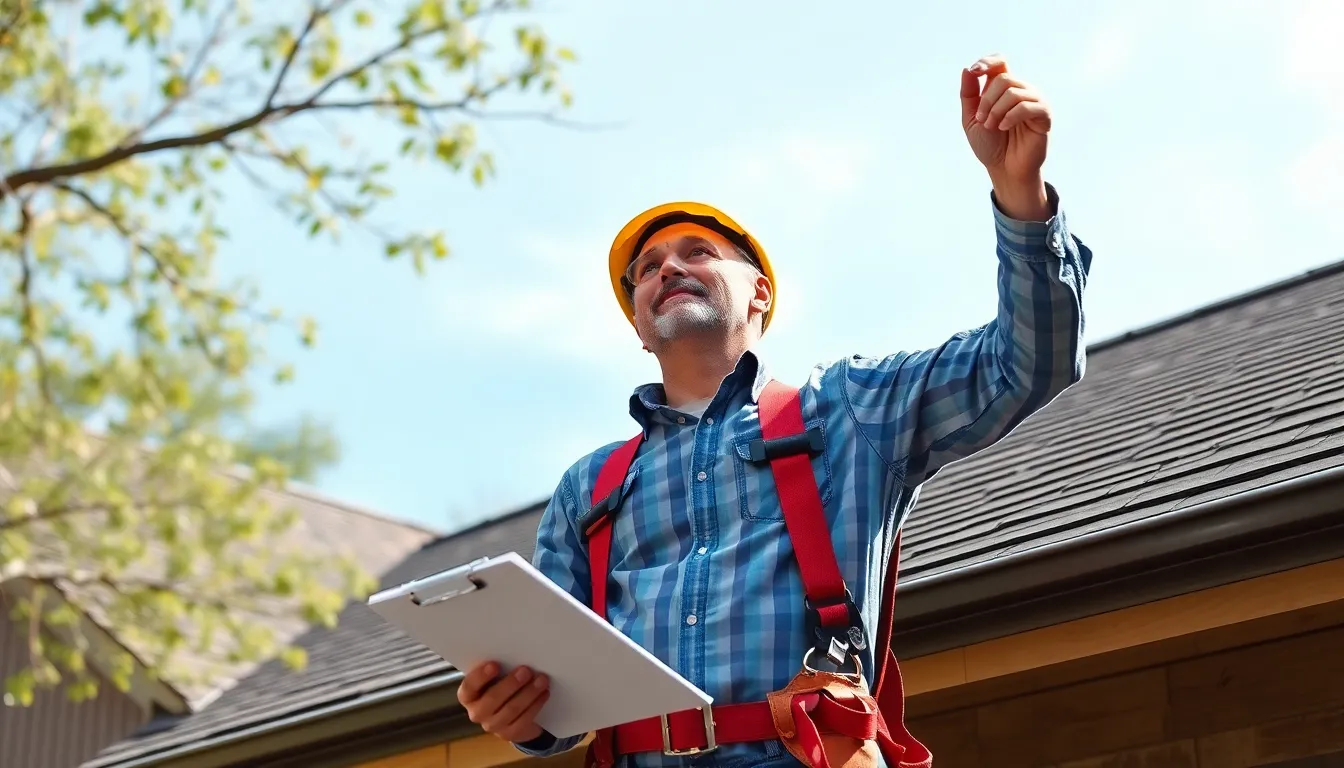
Regular home maintenance inspections focus on key areas to ensure overall safety and functionality. Prioritizing these areas helps homeowners address potential issues before they turn costly.
Roofing and Gutters
Inspecting roofs reveals crucial information about their condition. Loose shingles may indicate wear while missing ones suggest vulnerabilities. Regular checks for moss or algae buildup on roofs can help prevent damage. Gutters require attention too; efficient water drainage protects the foundation. Clogged gutters lead to water pooling which can cause structural problems. Homeowners should clean gutters at least twice a year to maintain proper flow.
Plumbing and Electrical Systems
Reviewing plumbing systems helps identify leaks or corrosion in pipes. Regular inspections can prevent water damage and high utility bills. Homeowners should also check for signs of mold, which often points to hidden leaks. Evaluating electrical systems involves checking outlets and switches for functionality. Frayed wires or overloaded circuits pose fire hazards. Adequate inspection can ensure safe operation, contributing to overall household safety.
HVAC Systems
Assessing HVAC systems involves checking filters for dirt and debris. Dirty filters reduce efficiency and increase energy costs. Homeowners should replace filters at least every three months to maintain optimal airflow. Inspecting ductwork for leaks is essential, as leaks can diminish efficiency and increase utility bills. A professional tune-up each year ensures the system operates smoothly, providing comfort regardless of the season.
Finding a Qualified Inspector
Selecting a qualified inspector is essential for effective home maintenance inspections. It’s crucial to find someone with experience and a strong reputation in the field.
Tips for Choosing the Right Inspector
Consider asking for referrals from friends and family. Look for inspectors with certifications from recognized organizations. Verify their experience levels to ensure they’ve handled similar properties. Review online testimonials and ratings to gauge customer satisfaction. Opt for inspectors that provide a written report detailing their findings.
Questions to Ask During the Interview
Inquire about their qualifications and certifications. Ask how long they’ve been performing inspections to assess their experience. Understand what areas they cover during an inspection. Request information about their inspection process and reporting methods. Clarify the costs involved and any additional fees associated with the inspection.
Preparing for Your Home Maintenance Inspection
Preparing for a home maintenance inspection ensures a smooth process and reveals potential issues. Homeowners should take several steps to facilitate the inspection process.
What to Do Before the Inspector Arrives
Ensure easy access to critical areas such as crawl spaces, attics, garages, and basements. Clear pathways of any furniture or clutter, making it simple for the inspector to maneuver. Gather important documents like previous inspection reports, warranties, and maintenance records; this information helps the inspector understand the home’s history. Test all systems, including plumbing, heating, and electrical, if any problems arise, as this aids in identifying existing issues. Finally, have all pets secured in a separate area to avoid distractions during the inspection.
Common Homeowner Mistakes to Avoid
Neglecting essential repairs before an inspection often leads to overlooked issues. Homeowners might also assume that all systems are functioning properly without testing them. Failing to communicate known problems with the inspector can hinder effective evaluations. Additionally, homeowners should avoid following the inspector too closely; allowing space lets the inspector perform their work thoroughly. Ignoring the inspector’s suggestions for maintenance can result in costly repairs down the line. Keeping these mistakes in mind promotes a proactive approach to home care and maximizes the benefits of the inspection.
Home maintenance inspections are vital for safeguarding a property’s value and ensuring a safe living environment. By identifying issues early homeowners can avoid costly repairs and enhance their peace of mind. Regular inspections not only keep homes in optimal condition but also contribute to energy efficiency and overall comfort.
Choosing a qualified inspector and preparing adequately can significantly impact the effectiveness of the inspection process. By taking these steps homeowners can create a proactive maintenance routine that protects their investment and fosters a secure and pleasant home atmosphere. Prioritizing home maintenance inspections is a smart strategy for any homeowner looking to maintain their property for years to come.

